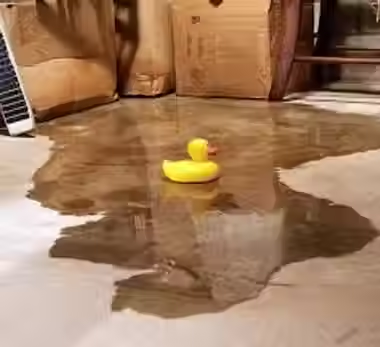

Indoor Air Quality Specialists
for mould, chemical pollution & damp
Qualified Technician
Leaders in indoor air quality servicing UK & Ireland

Why indoor air quality tests are important
The general public concerns are normally for outdoor air quality, yet Indoor air quality testing is the key for establishing the presence of mould in a property. This due to it being primarily airborne and only becoming visible when well established and growing as a fungi in your home. Mould spore also settles unseen in fabrics and without an air quality test it cannot be traced. All mould surveys should commence with an air quality diagnostics and microscopic test undertaken by a qualified technician equipped with the correct instruments.
Further more, environmental health researchers study how indoor air quality affects human health and well-being. Studies suggest that indoor concentrations of air pollutants are increasing, driven by factors such as the types of chemicals in home products, inadequate ventilation, hotter temperatures, and higher humidity.
Indoor air quality is a global issue. Both short- and long-term exposure to indoor air pollution can cause a range of health issues, including respiratory diseases, heart disease, cognitive deficits, and cancer. As one prominent example, the World Health Organisation estimates 3.8 million people worldwide die every year from illnesses attributable to harmful indoor air.
How big is the mould problem? Due to lack of records, it is difficult to determine a precise number of deaths from mould yearly in the UK, as many deaths are linked to broader categories like fungal diseases or indoor air pollution, with mould being a significant contributor.
However, estimates suggest toxic black mould may be linked to 1,200–1,250 fatalities per year in the UK, while a wider category of deaths linked to damp homes with airborne mould spore infestation is estimated at nearly 5,000 in a single winter. Mould spores can exacerbate existing respiratory conditions, leading to serious illness and, in severe cases, death.
Also in the UK, approximately 31,000 babies and toddlers are admitted to hospitals each year with lung conditions that are caused or exacerbated by damp, and mouldy homes.
-
Prevalence: Millions of people are estimated to live in homes with damp and mould, leading to a significant public health burden.
-
Allergic reactions: Around 3-10% of the population has a mould allergy, which can cause allergic reactions in addition to respiratory issues. Official Figures.
Myth's and legends regarding mould.
It seems at long last the misinformation on indoor mould and its related problems is changing for the better. Mould is a fungi, it does not start its life indoors, it produces spores that float though the air and enter the house through open doors and windows. If the indoor environment suits, it will stay and develop.
It is the spore that is dangerous to our health, as it is airborne and invisible it cannot be removed with cleaning or any off the shelf product. Mould spore can exist within a house without any visible sign for many years, many people seem the think, if you cannot see mould, you don't have it, which is totally incorrect and this is why you cannot check for mould visually or with moisture or diagnostic meters, it has to be undertaken with microscopic tests lab operated by a qualified technician who will know how to analyse the resulting m3 numbers. We are equipped to undertake this on site during the survey.
Make sure you have a full house survey undertaken by a qualified technician, contact pureAzone today.











